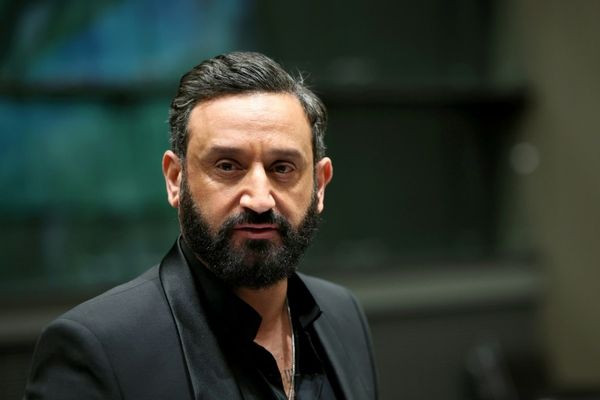
The dean at the University of Georgia’s law school has ordered its first amendment law clinic to cease all work related to public records law – including a lawsuit against the Atlanta Police Foundation, the non-profit organization behind a planned $109m training center colloquially known as Cop City.
Dean Peter B “Bo” Rutledge gave the order to clinic director Clare R Norins within weeks of the clinic’s February announcement that one of its attorneys would be representing the digital news outlet Atlanta Community Press Collective, or ACPC, and the Chicago-based digital transparency research organization Lucy Parsons Labs in a lawsuit against the police foundation. Both groups filed the suit after making numerous queries to the organization under Georgia’s open records act, only to be ignored.
Ed Vogel, a researcher at Lucy Parsons Labs and a plaintiff, called the timing of the decision “alarming”, adding that Rutledge “has a responsibility to be completely transparent about why it was made”.
The police foundation’s attorney in the lawsuit is Harold Melton, a former Georgia supreme court chief justice who graduated from UGA and now teaches at the school.
Norins told plaintiffs in a 5 April Microsoft Teams meeting that the law school clinic was stopping all open records work because the school itself “is subject to open records requests, thus creating a conflict of interest”, said Matt Scott, an editor at the ACPC. “This made no sense to me.”
Rutledge later sent the Guardian a statement asserting that the move was “part of ongoing efforts to align the First Amendment Clinic’s activities more closely with the institution’s educational mission”.
This is “puzzling” given that the clinic’s own website says the issues it focuses on include “government transparency”, and “that transparent government is essential to a free, open and democratic society”, noted Ken Paulson, director of the Free Speech Center at Middle Tennessee State University.
“This is frankly impossible to achieve if the dean of the law school takes open-records work off the table. Government transparency is composed of ‘sunshine’ and public records laws,” he said.
The UGA clinic is one of at least a dozen university law clinics nationwide with “first amendment” in their names; nearly all feature public records work prominently on their websites.
“It begs the question – what precipitated this?” said Paulson, of Rutledge’s decision.
Susan E Seager, law professor and director of the Press Freedom Project at the University of California at Irvine’s law school – who routinely sues state and local agencies for violating public records laws – called the law school’s decision “outrageous and cowardly”.
“There couldn’t be a more important use of university resources but to inform the public about what’s going on behind the closed doors of a powerful police organization that is acting as a government agency,” Seager said.
The suit itself has not gone away and is now in the hands of private attorney Joy Ramsingh, who specializes in public records law.
“If a private entity is contracting with or performing functions on behalf of the government, then its records are subject to public records requests,” Ramsingh said about the case. “The entire purpose of the [Atlanta police] foundation is to support the Atlanta police department, so it would be hard to find records that wouldn’t be subject to open records law.”
If the foundation’s position were to prevail, Ramsingh said, then “every government agency could have a non-profit booster club and … there’d be no open records”.
Vogel called the foundation “the object of arguably one of the strongest movements in the US”.
The fight against Cop City has drawn national and global headlines, particularly since 18 January of last year, when state troopers shot and killed Manuel Paez Terán, known as Tortuguita, who was camping in protest at a public park near the Cop City site – the first such incident in US history. Opposition to the project has come from a wide range of local and national supporters, with concerns such as unchecked police militarization and clearing forests in an era of climate crisis. Atlanta police say the center is needed for “world-class” training.
Atlanta’s police foundation is one of the largest and most well-funded among hundreds nationwide, with corporate donors such as Delta, Wells Fargo and Home Depot. Its CEO, Dave Wilkinson, is also the highest-paid among police foundation CEOs nationwide, with a 2022 salary of $500,000. Foundation spokesperson Nikki Glanton declined to comment for this story.
Sam Barnes, also with plaintiff ACPC, highlighted the University of Georgia’s place in circles of power in the state.
“When I was growing up, if you wanted to work in government, you went to UGA,” said Barnes.
Rutledge clerked for Clarence Thomas, and is featured in a painting included in ProPublica’s reporting on Republican donor Harlan Crow’s gifts to the supreme court justice.
“The fact that this institution that embodies and makes up so much of the power structure in our state is limiting itself from supplying a critical tool for government transparency is appalling and disappointing,” Barnes added.
The decision doesn’t just affect the Cop City case. Various local press outlets this week have expressed concern after learning about losing free legal help with public records. Appen Media, based in the suburbs north of Atlanta, wrote that “[j]ournalists across Georgia are mourning the loss of a crucial service”.
The suit against the police foundation, meanwhile, could have an impact beyond Georgia, said Vogel.
“If a decision is made that makes them subject to open records requests,” he said, “it will set a precedent that others will follow around the country.”







